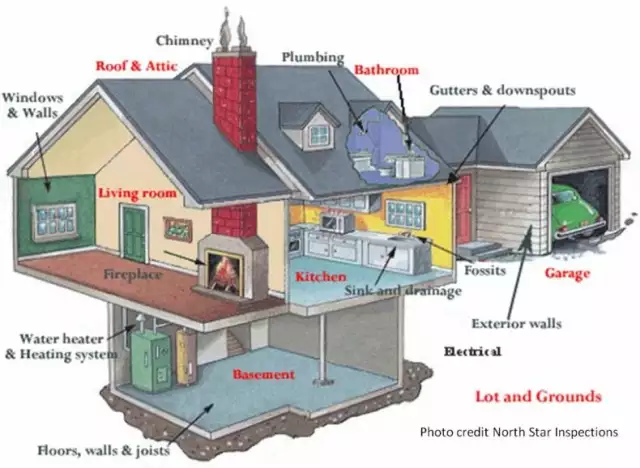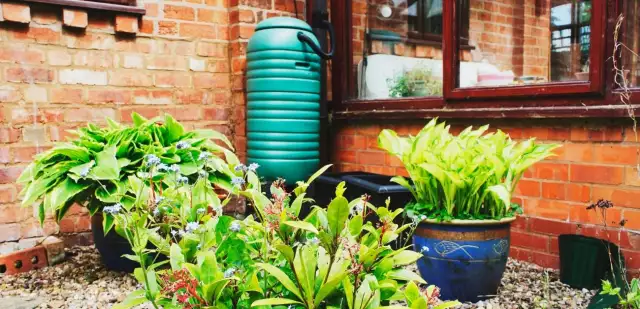What should I know About Home Inspection Checklist For Buyers
A home inspection checklist is a list of items that a home inspector will examine when evaluating a property. It is important for buyers to understand what is included in a home inspection so they can make an informed decision about purchasing a property.
- Structural integrity: The inspector will check for any signs of damage, settling, or other issues that could affect the structural integrity of the home.
- Roofing and gutters: The inspector will check for leaks, missing or damaged shingles, and other issues with the roofing and gutters.
- Plumbing: The inspector will check for leaks, clogs, and other issues with the plumbing system.
- Electrical: The inspector will check for any issues with the electrical system, such as outdated wiring or faulty outlets.
- Heating and cooling: The inspector will check for any issues with the furnace, air conditioning, and ventilation systems.
- Insulation and ventilation: The inspector will check for proper insulation and ventilation throughout the home, including in the attic and crawl spaces.
- Windows and doors: The inspector will check for any issues with the windows and doors, such as leaks or drafts.
- Appliances: The inspector will check for any issues with the appliances included in the sale of the home, such as the oven, dishwasher, and refrigerator.
- Pest and moisture damage: The inspector will check for any evidence of pests or moisture damage, such as termites or mold.
Home inspection checklists can vary depending on the inspector and the property, so it is best to consult with your inspector to understand their specific process. It is recommended that the buyers be present during the inspection and ask questions about any issues or concerns that come up.
Different states have different requirements for home inspections, and some may have additional requirements based on the location of the property. Here are some common types of inspections that may be required in different states:
- General home inspection: This is a comprehensive inspection of the overall condition of the home, including the structure, roof, plumbing, electrical, heating and cooling systems, and appliances.
- Termite inspection: Termites are a common problem in many states, and an inspector will look for signs of infestation or damage caused by these pests.
- Radon gas inspection: Radon is a naturally-occurring gas that can be harmful if it accumulates in high concentrations. Some states require a radon gas inspection to ensure that the property is safe.
- Septic system inspection: If the property has a septic system, an inspector will evaluate the condition of the system and ensure that it is functioning properly.
- Pool and spa inspection: An inspector will check the safety and condition of any swimming pools or hot tubs on the property.
- Wind and hail inspection: some states have a high risk of wind and hail damage, an inspector will check the condition of the roof, windows, and other exterior components to ensure that they are able to withstand these types of weather events.
- Mold inspection: an inspector will check for any signs of mold or water damage in the home.
- Asbestos inspection: some older homes may have asbestos-containing materials, an inspector will check for the presence of asbestos and evaluate the condition of these materials.
- Lead-based paint inspection: some states require a lead-based paint inspection, especially for homes built before 1978.
- Energy-efficiency inspection: some states may require an energy-efficiency inspection to evaluate the home's energy performance, identify areas for improvement, and recommend cost-effective solutions.
It's important to keep in mind that these are just examples and depending on the area you are buying a property, the regulations might be different and more specific.
Home Inspection Checklist for California?
When buying a house in California, there are a few additional things to consider beyond the home inspection checklist:
- Property taxes: California has relatively high property taxes compared to other states, so be sure to factor that into your budget.
- Earthquake insurance: California is located in an area with a high risk of earthquakes, so it's important to consider purchasing earthquake insurance.
- Natural disasters: California is also prone to wildfires and floods, so it's important to research the area's history of natural disasters and the steps the property has taken to mitigate the risk.
- Homeowners' association (HOA) fees: Some California homes are part of a homeowners association (HOA), which can have additional fees and regulations to abide by. Be sure to consider these fees when budgeting for your new home.
- Wildfire Risk: California has also seen a increase in wild fires, so be sure to check the property's wildfire risk and take steps to mitigate it.
- Insurance: California also has a high risk of natural disasters like wild fires and earthquakes, so ensure you have the right insurance coverage that suits your needs.
- Local market conditions: Be sure to research the local real estate market and consider how the property fits into that market. This can include researching home prices, property values, and local trends in the housing market.
- Zoning laws: California has strict zoning laws, so research the zoning laws of the area you're considering buying in and make sure that the property is zoned for the use you intend for it.
It is important to consult with a local real estate agent and a financial advisor to understand your specific needs and any other considerations.
Specific home inspections for each state
Different states may have different requirements for home inspections. For example, California has specific regulations regarding earthquake retrofitting, and Florida has specific regulations regarding hurricane protection.
- California: In California, a seismic retrofit inspection is needed for homes that are at risk of collapse during an earthquake. This type of inspection will evaluate the home's foundation, framing and other structural components to ensure that they are able to withstand seismic activity.
- Florida: In Florida, a wind mitigation inspection is often required, this inspection will evaluate features of the home that can help to protect it from wind damage during a hurricane, such as the roof, windows and doors, and the garage door.
- Texas: foundation inspection, windstorm and hail inspection, pool and spa inspection
- New York: Radon gas inspection, oil tank inspection, asbestos and lead-based paint inspections.
- Illinois: radon gas inspection, termite inspection, pool and spa inspection
- Colorado: radon gas inspection, sewer line inspection, pool and spa inspection
- Oregon: radon gas inspection, septic system inspection, pool and spa inspection
However, it is important to note that these are just examples and depending on the area you are buying a property, the regulations might be different and more specific.
It is always best to consult with a local home inspector who is familiar with the state-specific regulations and can advise you on the necessary inspections for a specific property. They will also be able to advise you on any additional inspections that may be required in order to comply with state and local regulations.
All of the agents at realiff.com provide commission refunds. Check out our services from the following categories:
- Buyers center: https://realiff.com/buyer
- Sellers center: https://realiff.com/seller
- Agents: https://realiff.com/agent
- Applying for a loan or refinance: https://realiff.com/loan
Or contact us for more information or get connected to our select agents in your area: https://realiff.com/contactUs







